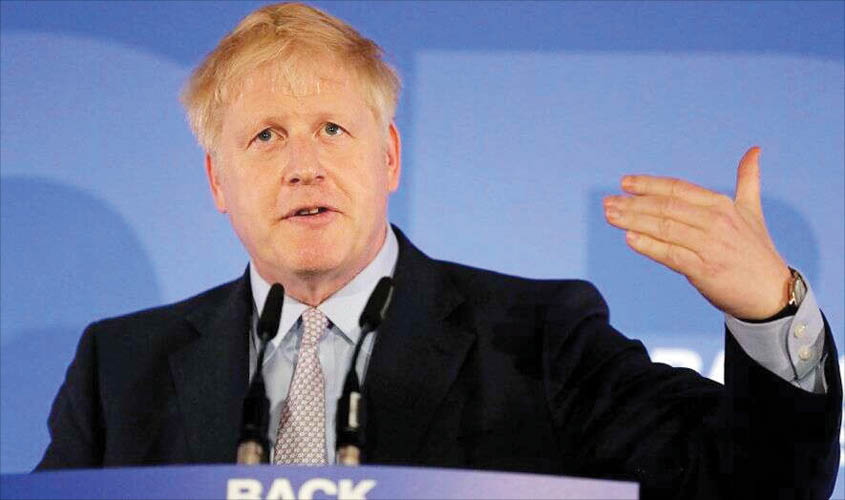Before most of the population had overcome the first wave of fear generated by Covid-19 and SAGE, a new sledgehammer of restrictions has been delivered onto UK family life; Boris Johnson who mostly talks about Covid-19 introduced “the Rule of 6”. This is a law which does not allow folks to meet in groups of more than 6, anywhere indoors or outdoors, hotels and hospitality industries will be fined if they do not follow Covid-19 secure rulings, but schools/workplaces are unaffected. “Covid-19 secure marshals” are going to help police “strongly” enforce the rules, seen as an authoritarian imposition which is alarming citizens and is feared to last into the new year. In March folks made an effort which has been acknowledged by the government to obey the rules, the government’s original excuse for not introducing lockdown earlier was “lockdown fatigue” which has now realised, most folks just want to lead a normal life. With rising Covid cases the younger generation feel the blame finger is being pointed at them, the Chief medical Officer Chris Whitty’s graphs and various Minister’s statements back this up; consequently the 19-30 age group are not endeared to the Conservative party.
Professor Carl Henegan, epidemiologist and Director of the Centre for Evidence Based Medicine at Oxford, states that PCR test detected cases are going up, but he argues that tests should have a cut-off point so irrelevant fragments of the Covid-19 virus are not counted as positive results. Henegan questions the usefulness of current testing information compared to data about the disease, admissions, critical care units and deaths, which are all at an historic low level. Henegan says fragments are not infectious, what is needed is to standardise testing, with recognised measures of infectiousness and a central licensing authority.
With reliable testing in still chaos, and reports of people travelling 100s of miles for a test only to be redirected further as tests had run out, folks are wondering what the cabinet has been doing since March. UK have created capacity in the NHS, folks protected the NHS from February, now if necessary they want the NHS to protect them. Johnson optimistically announced his Operation Moonshot programme that aims to test 10million people every day from 2021, at a cost of £100billion. Cambridge Professor David Spielgelholter says testing on this scale could produce 600,000 false positives a day. Covid restrictions plus Brexit not going as expected is a big pill for folks to swallow. The original “oven ready deal” that Johnson assured was shoo in, that was passed in late January by Johnson’s newly elected parliament is now set to be altered. At present Article 10 of Northern Ireland Protocol in the Withdrawal Agreement commits the Northern Ireland to EU state aid and rules after the end of the transition period, 31st December 2020; depending on the EU’s interpretation this means that any future UK subsidies that affect trade between NI and EU will be bound by EU state aid rules. A proper Brexit is supposed to end the application of EU laws in UK and replace the Withdrawal Agreement with a Free Trade Deal, the EU seem unable to accept this. Critics see the Internal Market Bill reintroducing the “Backstop” now dubbed the “Frontstop” because it puts a border in the Irish Sea between Great Britain (GB) and Northern Ireland (NI), which means tariffs will apply to all goods and services, and scope for physical checks between NI and GB. Supporters say the government is right to explore options to deliver what Brexit promised, full sovereignty, and some say the government’s negotiating team is just sabre rattling. Surprisingly the Secretary of State for NI Brandon Lewis admitted in the House of Commons the Bill breaks with “international law in a limited and specific way”. Former PMs Theresa May, former Leader Michael Howard, Brexiteers in the House of Lords and brave Backbenchers, along with Sir Declan Morgan NI Chief Justice and Micheál Martin Taoiseach have all asked if UK is prepared to break international law, and how will that affect public and international partners confidence. The EU have already published a statement that the Bill violates the Withdrawal Agreement (WA) and international law and EU sees a case for legal action. So far Suella Braverman the Attorney General has not made any comment, consensus is growing that the government would be permitted to change the law with Labour expected to abstain, and the Tory backbench rebellion expected to fizzle out.
To help traders in NI the Cabinet Office have launched the free to use online Trader Support Service for to businesses bringing in goods from Great Britain or from the rest of the world, providing guidance as well as dealing with their requirements for moving goods into NI.
The Chair of the European Research Group’s Steering Group, Sir Bernard Jenkin, his first press release reminded the population that the government have a mandate to change the law to nullify and change the direct effect and applicability of EU law, or to repudiate the EU’s unreasonable interpretation of the WA and leave without a trade deal. However Jenkin was not impressed with Brandon Lewis’ cavalier disclosure in the House of Commons “The PM should be more mindful of reputational damage when there is really no consensus from the country to go about breaking international agreements”.

